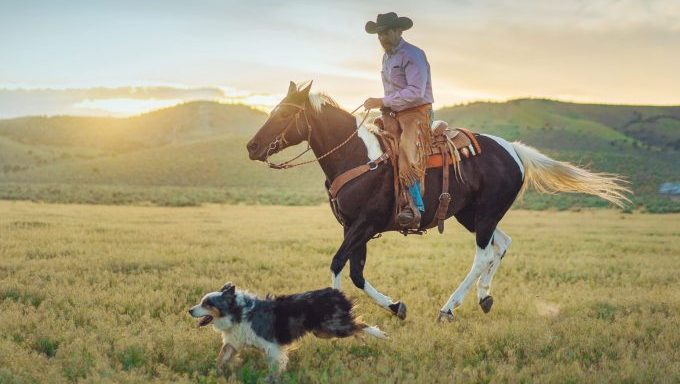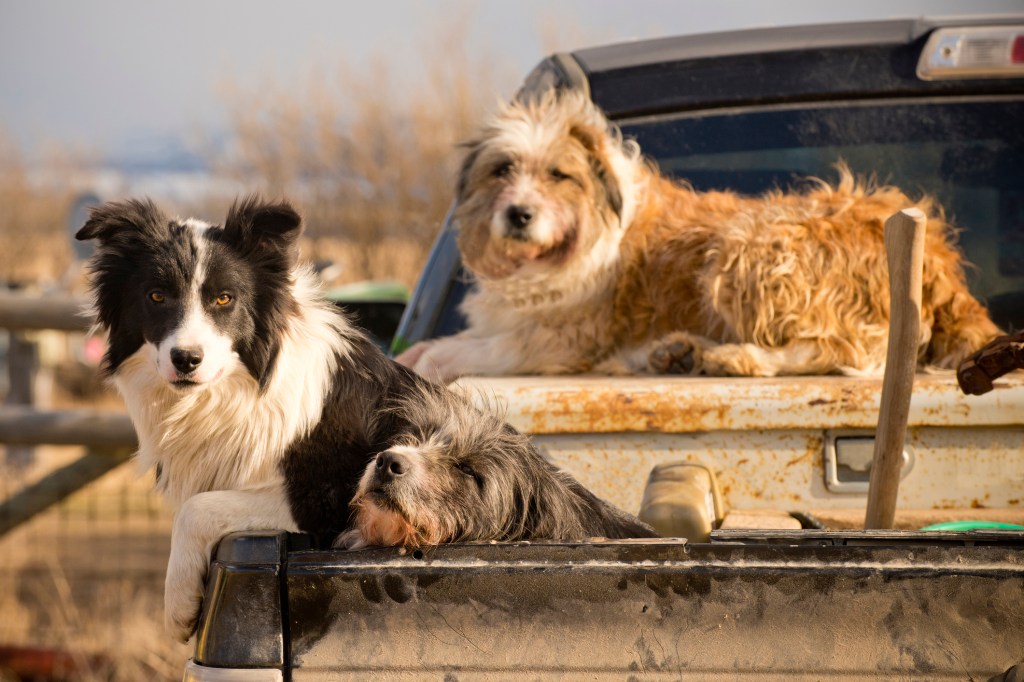
Livestock guardian dogs (LGDs) are essential for farmers and ranchers looking to keep their livestock safe from predators. These dogs have been bred for centuries to guard homesteads and protect livestock, such as sheep, goats, cattle, and chickens. But this type of dog has seen a resurgence in popularity lately, likely due to the homesteading movement.
While LGDs are known for their effectiveness as protectors, myths about livestock guardian dogs, their behavior, and training can lead to misunderstandings and mishandling. We will debunk some common myths about livestock guardian dogs and provide accurate information to help ranch owners and farmers better understand these valuable working dogs. By debunking these myths, we can ensure that LGDs are trained and managed to maximize their effectiveness.
Myth 1: LGDs don’t need training
One of the most common myths about LGDs is that they don’t need training. Not true! While LGDs have an innate protective instinct, they must learn to differentiate between real threats and harmless animals. Don’t just toss LGDs in with livestock before receiving proper training. You can start by checking out our guide to training barky LGDs.
Additionally, LGDs must learn to work with their human handlers. Without proper training, LGDs can become aggressive toward harmless animals or people, which could result in harm to those around them. Additionally, they may be unable to effectively protect livestock from real predators if they don’t know how to work with their handlers.
Myth 2: LGDs will attack humans
Another myth about LGDs is that they will attack humans. People breed and train LGDs to protect livestock, not to attack humans. However, it’s important to note that LGDs can become protective of their territory, so it’s crucial to socialize and train them properly. Additionally, some dog breeds serve better as guard dogs for homesteads than others.
Myth 3: LGDs will kill predators on sight
While LGDs effectively protect livestock from predators, they won’t necessarily kill predators on sight. People must train LGDs to intimidate predators and protect their charges, not to kill. Additionally, some predators, such as coyotes and wolves, are protected by law, so LGDS need to know how to protect livestock without killing predators.
Myth 4: LGDs can protect any kind of livestock
Another myth about LGDs is that they can protect any type of livestock. Wrong! Different LGD breeds have unique characteristics and are better suited to different kinds of livestock.
Myth 5: LGDs don’t get along with other dogs
Some believe that LGDs don’t get along with other dogs. This assumption is incorrect. While LGDs can be territorial, they can get along with other dogs with proper socialization and training. Additionally, some dog breeds are more dog-friendly than others.
Myth 6: You cannot make friends with your LGD
According to Countryfarm Lifestyles, “This myth came from the 1970s when livestock guardian dogs were first being imported and most didn’t have an understanding of them or how different they are to other breeds of dogs.” In other words, there’s no reason why you and your LGD can’t be best buds.
When LGDs receive training and socialization, they often bond with their handlers and become affectionate towards them. While these pups will never be house dogs because they love their work, they should feel safe and welcome in your home when it’s time to rest. The key is establishing trust and respect through positive reinforcement training and bonding activities. According to For Love of Livestock, “The happiest and most effective LGD is one that is deeply bonded to you and your animals.”
Myth 7: All LGD breeds are the same
Another myth about LGDs is that all breeds are the same. Untrue! Different breeds have different temperaments, sizes, and energy levels. As such, each breed is ideal for different kinds of livestock, climates, and jobs. Understanding each canine’s unique characteristics is crucial to choosing the breed for your specific needs.
Myth 8: LGDs are stubborn
While LGDs can be independent and strong-willed, they are not innately stubborn. They have been bred to work in tandem with farmers and ranchers. With training, these highly intelligent pups can learn to follow commands and work effectively with their handlers. Positive reinforcement training techniques are especially effective with LGDs, as they respond well to rewards and praise.
Myth 9: LGDs don’t need fences
The myth that LGDs don’t need fences is dangerous and puts livestock and LGDs at risk. While LGDs are bred to protect livestock, they still require boundaries and barriers to keep them within the designated grazing areas. LGDs like to roam and will do so beyond property lines without proper fencing. As a result, they may get into conflicts with neighboring homesteads or wander into traffic.
Additionally, LGDs may chase or harm other animals they perceive as threatening their territory or livestock. Chasing can lead to unnecessary injuries or even legal consequences for the owner. Therefore, providing proper fencing and boundaries is crucial to ensure the safety of both LGDs and other animals in the area.
Moreover, LGDs need to understand the boundaries and limits of their grazing area to work effectively. They need to be able to patrol the area and detect potential threats to the livestock. With proper boundaries and fencing, LGDs can do their job more effectively, which prevents potential livestock loss.
Beyond the myths about livestock guardian dogs
LGDs are invaluable to farmers and ranchers as they protect livestock from predators. However, it’s important to understand the truth about LGDs and dispel the myths surrounding them. With proper training, socialization, and understanding of their breed characteristics, LGDs can be effective protectors and sweet canine companions.
Now that you know the truth about livestock guardian dogs, check out the best dog breeds for your homestead and the best LGDs to be guardian dogs!









